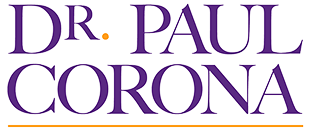An excerpt from Dr. Paul Corona’s upcoming book, Healing the Mind and Body: The Doctor and Patient Guide
I have found that treating patients with neurochemical disorders is by far the most interesting and impacting area of medicine as compared to any other medical problems that I’ve had the opportunity to treat. I have enjoyed all aspects of family practice, but I found out along the way that treating neurochemical imbalances is definitely the most exciting and rewarding aspect of practice, since such dramatic and impacting results happen so quickly and lead to such satisfactory results for patients and doctors alike.
Starting as a family physician and learning this subject by, first, understanding the medical model was essential to my learning how to apply this “method” in the way that led to my discovering so many amazing things about how the mind and body work together.
It is important to understand how the brain connects to the all the other organ systems in order to fully appreciate how to go about treating these conditions. Mind-body disorders combine medical and physical with psychological and emotional aspects, which ideally should all be in harmony at the same time. Learning to treat this provides an excellent opportunity to really connect with our patients and strengthen the doctor-patient bond, by open communication and an honest and open exchange of ideas.
As our comfort level increases about learning how to how to best use and combine these exciting products, then prescribing habits and patient acceptance changes for the better.
There is no medical condition that is more under-recognized and under-treated than neurochemical imbalances, which causes such an emotional and physical toll on patients. There is no reason that this trend needs to continue with all the information and evidence available.
Doctors, like others, can become creatures of habit, doing things as we have learned in training or have always done in the past. In every profession, newer and better ways are developed if one wants to truly be successful with one’s patients. If physicians feel that how they’ve always done things works for them, they should be more concerned that what they are doing is really working best for their patients.
We can always do better when we try. We need to avoid getting stuck in our ways by studying and learning new and better ways of doing things. This is important in all professions, but it is especially important in the medical profession, since the quality and quantity of our patient’s lives depends on what we recommend. This is especially true in the field of mind-body medicine, which has such a dramatic impact.
Physicians should constantly learn and update our thinking by applying new information in order to benefit the health and welfare of our patients. We shouldn’t accept just “okay” or “good results” if great or excellent results are possible. We shouldn’t be satisfied if our patients are not fully satisfied and well!




